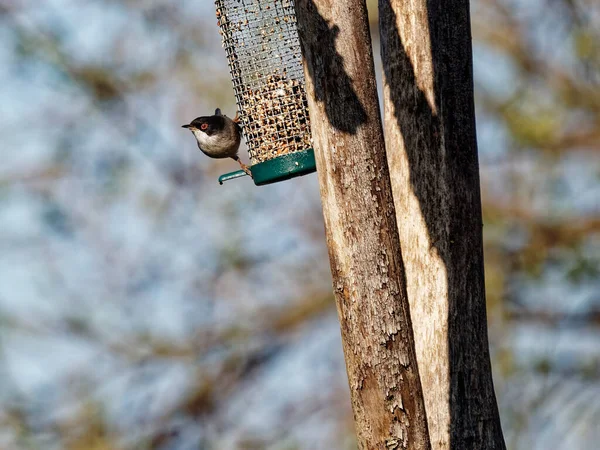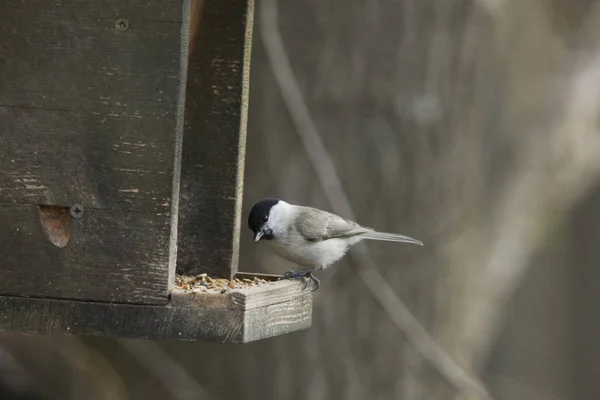Bird Seed Feeding can attract a variety of colorful birds to your garden.
Bird seed feeding is more than just a hobby—it’s a doorway to a vibrant, bustling world of feathered friends. Imagine your backyard transformed into a bustling aviary, with colorful finches, cheerful chickadees, and majestic cardinals fluttering in for a feast. Whether you’re a seasoned bird enthusiast or just starting, bird seed feeding offers a delightful way to connect with nature and create a haven for our feathered companions.

Bird Seed Feeding
Types of Bird Seeds
There are several types of bird seeds commonly used in bird feeders, each attracting different bird species. Popular options include black oil sunflower seeds, Nyjer (thistle) seeds, millet, and safflower seeds. Understanding the preferences of the birds in your area can help you choose the right mix for your feeder.
Attracting Specific Bird Species
Different bird species have different seed preferences. For example, finches are attracted to Nyjer seeds, while cardinals prefer sunflower seeds. By offering a variety of seeds, you can attract a diverse range of bird species to your yard.
Tips for Bird Seed Feeding
Keep your bird feeders clean and well-maintained to prevent the spread of disease.
Place feeders in safe locations, away from predators and obstacles.
Provide fresh water for drinking and bathing, as birds need water for both hydration and grooming.
Benefits of Bird Seed Feeding
Bird seed feeding offers a plethora of benefits, making it a popular choice among bird enthusiasts. Attracting a variety of bird species, it creates a vibrant avian ecosystem in your backyard. Additionally, it provides essential nutrients for birds, aiding in their overall health and well-being. During harsh weather conditions, such as winter, bird seed feeding becomes crucial, helping birds survive when food sources are scarce. Moreover, this activity encourages bird watching, fostering a deeper appreciation of nature’s beauty and diversity.
Types of Bird Seeds
When it comes to bird seed options, there’s a diverse array to choose from, each with its unique benefits. Sunflower seeds are a favorite among many bird species, offering a good source of energy and nutrients. Nyjer (thistle) seeds are beloved by finches and other small birds, known for their high oil content. Safflower seeds are a great choice for attracting cardinals, while millet is favored by ground-feeding birds like sparrows and juncos. Mixed seed blends provide a variety of options in one package, catering to a wide range of bird preferences.
Choosing the Right Bird Seed
Choosing the right bird seed is essential for attracting and nourishing local bird species. Consider the types of birds common in your area to select seeds that cater to their preferences. Avoid seeds with fillers like corn or milo, as they provide little nutritional value and may go uneaten. Opt for high-quality seeds to ensure they are free from contaminants and molds. Store seeds in a cool, dry place in airtight containers to maintain freshness and prevent spoilage.
Bird Feeders and Feeding Stations
Bird feeders and feeding stations play a crucial role in attracting and feeding birds in your backyard. There are several types of feeders to choose from, including tube feeders, hopper feeders, and platform feeders, each catering to different bird species. Proper placement of feeders is essential for both the safety of the birds and to attract them to your yard. Regular maintenance and cleaning of feeders are necessary to prevent mold growth and ensure the health of visiting birds.
Best Practices for Bird Seed Feeding
For successful bird seed feeding, it’s essential to follow best practices that benefit both the birds and your environment. Regularly clean feeding areas to prevent mold and disease transmission among birds. Providing fresh water for drinking and bathing is also crucial for their hydration and hygiene. Monitor seed levels in feeders regularly and refill them as needed to ensure a constant food supply. Keep feeders away from predators, such as cats, to protect the birds while they feed. Following these practices can help create a safe and inviting environment for birds in your backyard.
Common Bird Species Attracted to Seed Feeders
Seed feeders are a magnet for a variety of bird species, adding color and life to your outdoor space. Cardinals, with their striking red plumage, are a common sight, attracted by sunflower seeds and safflower seeds. Blue jays, known for their vibrant blue feathers, are also frequent visitors, enjoying a mix of seeds and nuts. Chickadees, with their cheerful chirps, are fond of sunflower seeds and suet. Finches, including goldfinches and house finches, flock to feeders filled with Nyjer seeds. Sparrows, adaptable and abundant, are often seen feeding on mixed seed blends. Woodpeckers, with their distinctive drumming, are attracted to suet feeders but also enjoy nuts and sunflower seeds.
Bird Seed Feeding Tips for Different Seasons
Adjusting your bird seed feeding practices according to the seasons can greatly benefit the birds in your area. In winter, when food is scarce and temperatures are cold, providing ample food can help birds survive. Spring and summer are crucial times for breeding and nesting, so offering high-energy foods like suet and mealworms can support their efforts. Fall is a time of preparation for migration, so providing nutrient-rich foods can help birds build up their energy reserves for the long journey ahead. By understanding the needs of birds in different seasons, you can provide the right foods at the right times to support their health and well-being.
Potential Problems with Bird Seed Feeding
While bird seed feeding is a rewarding activity, it can come with some challenges. Squirrels and other pests are common nuisances, often raiding feeders and stealing seeds meant for birds. Additionally, bird feeders can sometimes become breeding grounds for diseases that can spread among bird populations. Another concern is the impact of seed waste on the environment, as uneaten seeds can attract unwanted pests and contribute to the spread of invasive plant species. Regular cleaning of feeders and using squirrel-proof designs can help mitigate these issues, ensuring a safe and enjoyable feeding experience for both birds and bird enthusiasts.

FAQs
What types of birds can I attract with bird seed?
Bird seed can attract a variety of birds, including finches, sparrows, chickadees, and cardinals, depending on the seed mix you use and your region.
How do I choose the right bird seed for my feeder?
Consider the types of birds in your area and their seed preferences. A mix containing sunflower seeds, millet, and cracked corn is often a good choice for attracting a diverse range of birds.
How should I store bird seed to keep it fresh?
Store bird seed in a cool, dry place in airtight containers to prevent moisture and pests from getting in. Avoid storing seed for extended periods to maintain freshness.
Are there any bird seed types I should avoid feeding birds?
Yes, avoid using seed mixes with large amounts of filler ingredients like milo, as many birds won’t eat it. Also, avoid using moldy or spoiled seed, as it can be harmful to birds.
How often should I refill my bird feeder?
It depends on the amount of bird activity and the size of your feeder. Check your feeder regularly and refill it when it’s empty or nearly empty to ensure birds have a constant food source.
What can I do to prevent squirrels and other pests from getting into my bird feeder?
Use squirrel-proof feeders, baffles, or place the feeder in a location that’s difficult for squirrels to access. You can also try using safflower seed, which many birds enjoy but squirrels tend to avoid.
Can I feed birds in the summer, or is it only necessary in the winter?
You can feed birds year-round, as they can benefit from supplemental food sources, especially during times when natural food is scarce, such as in the winter or during droughts.
How can I attract a specific type of bird to my feeder?
Research the specific bird’s diet preferences and habitat requirements. Providing the right seed and feeder type, along with suitable shelter and water, can help attract specific bird species.

Conclusion
In conclusion, bird seed feeding is a rewarding and enjoyable activity that can benefit both birds and bird enthusiasts. By providing a variety of seeds in suitable feeders, we can attract a diverse range of bird species to our yards, creating a vibrant and dynamic environment. Additionally, bird seed feeding allows us to observe these beautiful creatures up close, fostering a deeper appreciation for wildlife. It’s essential to choose high-quality seeds, maintain clean feeders, and consider the specific dietary needs of the birds in our area.
With proper care and attention, bird seed feeding can be a fulfilling hobby that supports the health and well-being of our feathered friends.